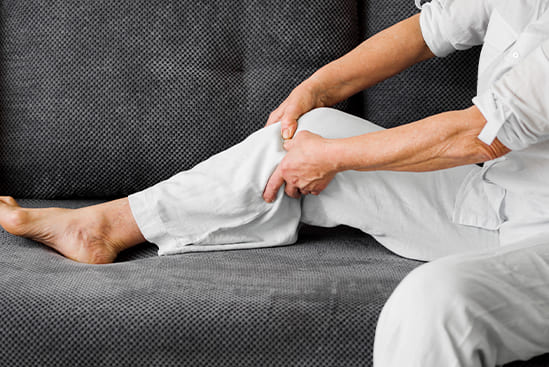
Synapse Physiotherapy
Introduction
When injury, surgery, or chronic pain disrupt your daily life, finding the most effective way to heal becomes a top priority. Among the many treatment options available, physiotherapy consistently stands out as one of the best choices for recovery. Whether you’re dealing with a sports injury, post-surgical rehabilitation, or long-term joint pain, physiotherapy offers a personalized, evidence-based approach that promotes healing from the inside out.
For individuals searching for the best physiotherapy, it’s important to understand why this method has gained such wide acceptance across all ages and conditions. Physiotherapy doesn’t just focus on symptom relief—it aims to restore movement, rebuild strength, and improve overall functionality. With a holistic approach, it addresses the root cause of pain and empowers patients to take control of their recovery journey.
Let’s explore why physiotherapy is often considered the gold standard in rehabilitation, and what makes it the best option for those seeking a safe, sustainable path to recovery.
1. A Personalized Approach to Healing
One of the key reasons physiotherapy is so effective is its personalized nature. Every patient is unique, and so are their injuries or health concerns. A professional physiotherapist will conduct a thorough assessment to understand your specific condition, goals, and lifestyle. From there, a tailored treatment plan is created to address your individual needs.
Benefits of a personalized plan include:
- Faster, more effective results
- Minimization of unnecessary treatments
- Greater motivation and engagement
- Focused attention on both short-term relief and long-term prevention
This level of customization is what sets physiotherapy apart from generic recovery programs.
- Drug-Free, Non-Invasive Treatment
For many people, especially those with chronic pain, reliance on medication can become a long-term concern. Physiotherapy provides a drug-free, non-invasive alternative that promotes healing naturally. Techniques such as manual therapy, guided exercises, dry needling, and electrotherapy target the source of the pain without relying on pharmaceuticals.
This makes physiotherapy an excellent choice for:
- Patients with sensitivities to medication
- Those looking to avoid surgery or injections
- Individuals preferring a more holistic recovery path
By encouraging the body to heal itself through movement, strength, and stability, physiotherapy promotes lasting results.
3. Speeds Up Post-Surgery Recovery
After surgery, regaining mobility and strength can be a slow process. Physiotherapy plays a critical role in accelerating post-operative recovery, whether it’s after joint replacements, ligament repairs, or spinal surgeries.
Post-surgical benefits of physiotherapy include:
- Reducing swelling and inflammation
- Restoring joint flexibility and muscle strength
- Preventing complications such as blood clots or stiffness
- Supporting safe and gradual return to activity
A guided rehabilitation plan ensures a smoother recovery and a quicker return to your normal routine.
4. Prevents Future Injuries
Physiotherapy doesn’t just treat the current injury—it also focuses on preventing future problems. Through movement assessments, strength testing, and education, physiotherapists can identify risk factors and teach you how to avoid re-injury.
Injury prevention strategies include:
- Correcting posture and movement imbalances
- Educating on proper body mechanics during daily tasks or sports
- Strengthening weak muscle groups
- Improving balance and coordination
This proactive approach is what makes physiotherapy a sustainable long-term solution, especially for athletes and active individuals.
5. Effective for a Wide Range of Conditions
Another major advantage of physiotherapy is its versatility. It can benefit people from all walks of life—from children to seniors—and treat a broad spectrum of conditions.
Common conditions physiotherapy treats:
- Back and neck pain
- Shoulder and knee injuries
- Arthritis and joint stiffness
- Sports injuries
- Stroke and neurological conditions
- Postural problems
- Work-related or repetitive strain injuries
Whatever your health concern, there’s likely a physiotherapy method to support your recovery.
6. Encourages Active Participation
Unlike passive treatments where the patient simply receives care, physiotherapy encourages active involvement in the healing process. Patients are taught exercises to perform at home and become active participants in their own recovery.
Why this matters:
- Builds a sense of control and responsibility
- Reinforces positive habits and movement patterns
- Increases treatment effectiveness between sessions
- Encourages consistency and accountability
Empowerment is a big part of what makes physiotherapy so effective—and why it often leads to better long-term outcomes.
7. Holistic Health Benefits
Physiotherapy doesn’t only address physical issues—it also supports mental and emotional well-being. Chronic pain, reduced mobility, or injury can impact a person’s mood, confidence, and lifestyle. By restoring function and independence, physiotherapy contributes to better overall health.
Additional benefits include:
- Improved sleep and energy levels
- Reduced anxiety or stress about physical limitations
- A more active, engaged lifestyle
- Renewed confidence in movement and daily activities
Healing the body often leads to healing the mind, and physiotherapy embraces that connection.
Conclusion
When it comes to recovery from injury, surgery, or chronic pain, Synapse Physiotherapy stands out as the best choice for personalized, holistic, and results-driven care. With a patient-centered approach, expert therapists, and a strong foundation in evidence-based practice, Synapse Physiotherapy provides the best physiotherapy services to help you regain strength, mobility, and confidence.
Whether you’re starting your rehabilitation journey or looking for long-term pain management, Synapse Physiotherapy offers comprehensive support tailored to your individual needs. Our goal is to guide you through every stage of recovery—helping you move better, feel better, and live better.
Ready to take control of your recovery?
Contact Synapse Physiotherapy today and let us help you achieve your health and wellness goals.
Tags :

Back & Neck Pain
Conditions such as stiffness, postural abnormalities and muscle overuse from prolonged desk work at the office or home is more prevalent than most would think. We provide the necessary tools to fix you up and educate you on ergonomics which can unload unnecessary stress.
- Spine & Core Rehabilitation
- Strength & Conditioning Programme
- Pain Management
- Biomechanical Assessment
- Sports Physiotherapy
- Group Class

Sports Injuries
Rolled ankles, jarred knees, impinged shoulders are few conditions in the plethora of sports injuries which can hamper performance and limit our enjoyment of sports. Physiotherapy not only treats the symptoms of these conditions but propels your overall fitness to greater heights.
- Strength & Conditioning Programme
- Pain Management
- Biomechanical Assessment
- Sports Physiotherapy
- Shockwave Therapy
- Group Class

Work Desk Injuries
Conditions such as stiffness, postural abnormalities and muscle overuse from prolonged desk work at the office or home is more prevalent than most would think. We provide the necessary tools to fix you up and educate you on ergonomics which can unload unnecessary stress.

Pre-Post-Surgical Conditions
Surgery involves going through preparation both before and after. Physiotherapists play a vital role in getting your body ready for surgeries with circulatory, breathing and strengthening exercises. After the procedure, let us be there for your recovery and rehabilitation, taking it one step at a time.

Scoliosis & Postural Abnormalities
The way we stand, sit, walk and sleep has influence over our posture and the overall balance of muscles controlling its alignment. A comprehensive screening can be done by our physiotherapists to detect abnormalities, which we will aid in correcting.

Neurological Conditions
Neurological disabilities such as stroke, nerve compression and neuropathies can be barriers for patients to live life to its fullest. We at Synapse are committed to help you overcome these hurdles by ensuring functional mobility and quality of life is at its optimum by providing the right treatment and exercises.

Osteoarthritis & Rheumatism
Joint degeneration and inflammation happens as the human body grows older, but that does not mean our way of life degenerates as well. Relief your joint pains with a joint effort together with your physiotherapist, who will provide pain-relief treatments and prescribe exercises for your wellbeing.

Conditions Relating To Elderly
Common conditions in the older age population include hips & knee pain, back & neck pain, osteoarthritis, rheumatism, fear of falling and many more. Aging and degeneration of bodily function is inevitable, but here at Synapse, we will help you live the best of your life.

Home Physiotherapy
We understand that some conditions or injuries can make it difficult to receive rehabilitation at our clinic be it mobility or transportation issues. Our objective is to provide you with the same high-quality physiotherapy services at home that you would receive in-clinic.
